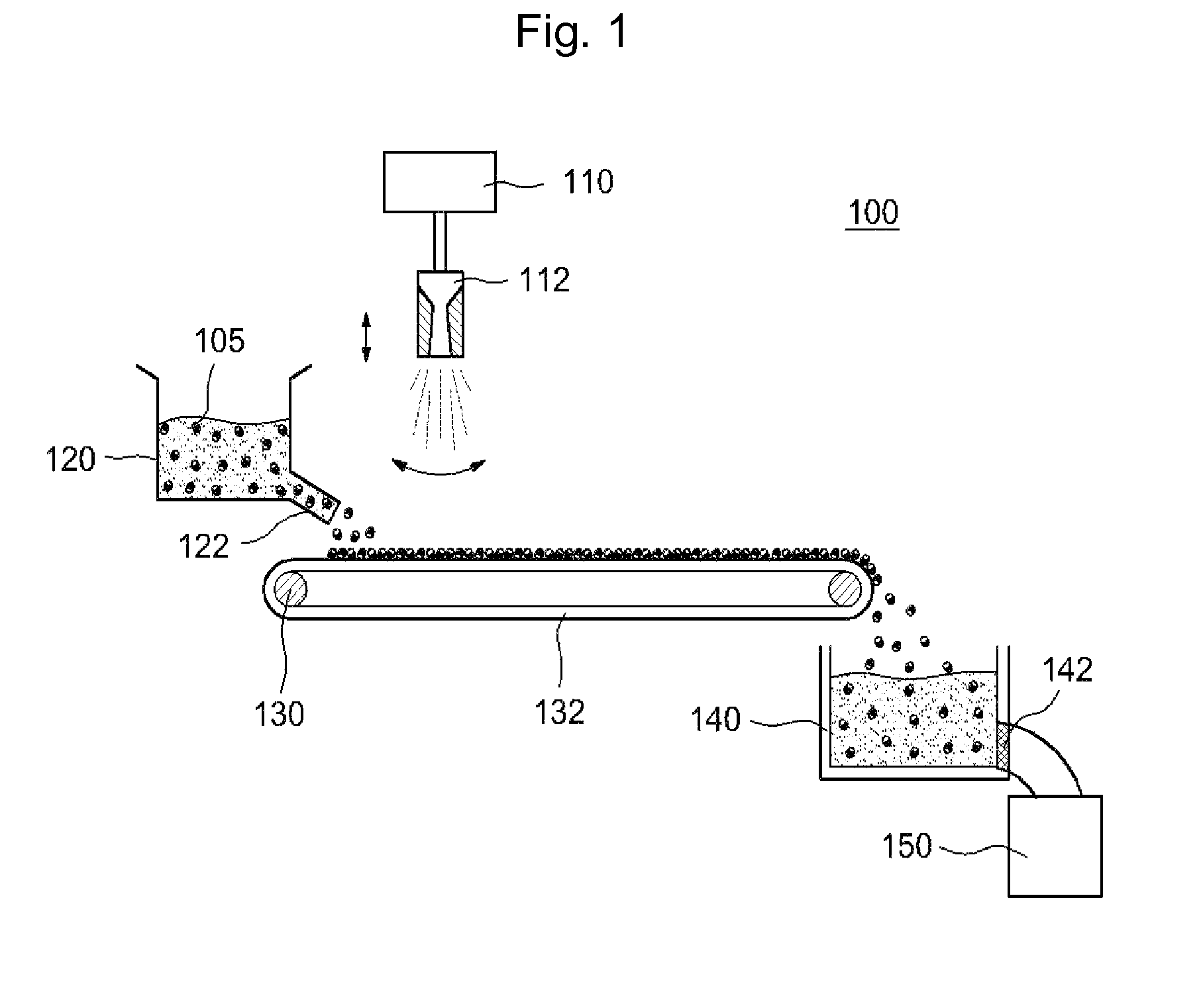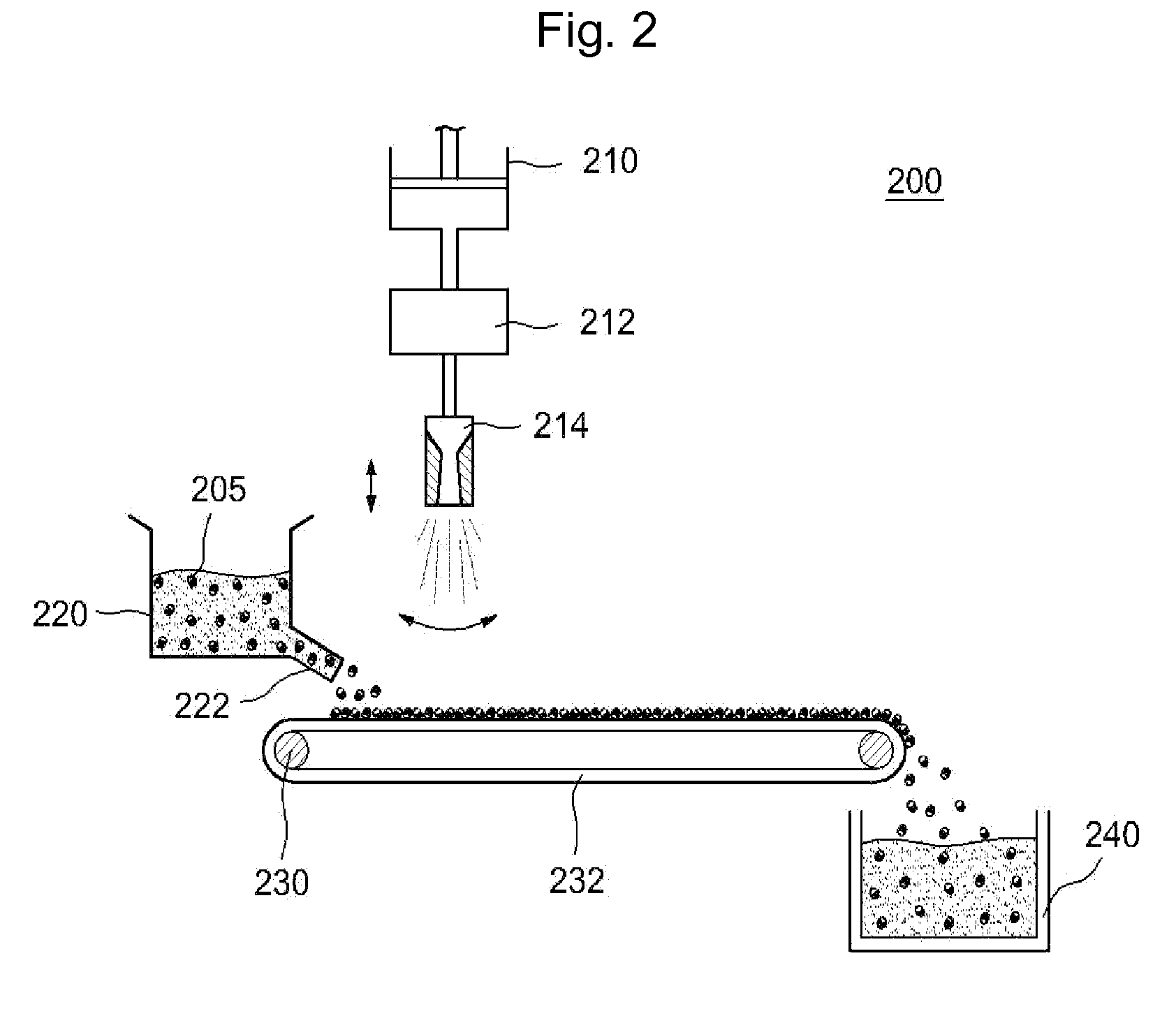Method of manufacturing soil reinforced by microbe-based bio-binders and soil produced by the method
a microbe-based bio-binder and microbe-based technology, applied in the direction of sustainable waste treatment, solid waste management, application, etc., can solve the problems of insufficient strength of existing bio-binders to be used as materials for civil engineering structures and residential buildings, and harm to humans, so as to secure sufficient soil strength and wind resistance
- Summary
- Abstract
- Description
- Claims
- Application Information
AI Technical Summary
Benefits of technology
Problems solved by technology
Method used
Image
Examples
embodiment 1
[0040]A urea-NB medium (20 g urea and 3 g nutrient broth per 1 L of distilled water) was prepared by autoclaving, to which filter-sterilized 1 M CaCl2 was added to a final concentration of 100 mM CaCl2. Then, S. pasteurii (American Type Culture Collection 11859) was asceptically suspended to the urea-NB-CaCl2 medium to obtain a concentration of 1×107 cells / mL. For the soil tests, the medium with cells and sand were mixed together at a ratio of 15 ml to 100 g, to which 0.25 g of polypropylene fibers (5 cm in length, 1.2 mm in width, and 0.038 mm in thickness) were mixed thoroughly to assure an even distribution of sand, cells, and fibers in the mixture. The mixture was transferred to the experimental apparatus and placed in an oven at 45° C. for four days before being tested.
[0041]Later, with the tri-axial compression test (GEOTAC sigma-1), the soil strength of 7-cm-diameter 18 cm-length 155 kg / m3-weight soil was measured to be 2,250 psf at a strain rate of 1.25 mm / min.
Embodiments 2˜...
PUM
| Property | Measurement | Unit |
|---|---|---|
| diameter | aaaaa | aaaaa |
| diameter | aaaaa | aaaaa |
| width | aaaaa | aaaaa |
Abstract
Description
Claims
Application Information
 Login to View More
Login to View More - R&D
- Intellectual Property
- Life Sciences
- Materials
- Tech Scout
- Unparalleled Data Quality
- Higher Quality Content
- 60% Fewer Hallucinations
Browse by: Latest US Patents, China's latest patents, Technical Efficacy Thesaurus, Application Domain, Technology Topic, Popular Technical Reports.
© 2025 PatSnap. All rights reserved.Legal|Privacy policy|Modern Slavery Act Transparency Statement|Sitemap|About US| Contact US: help@patsnap.com


